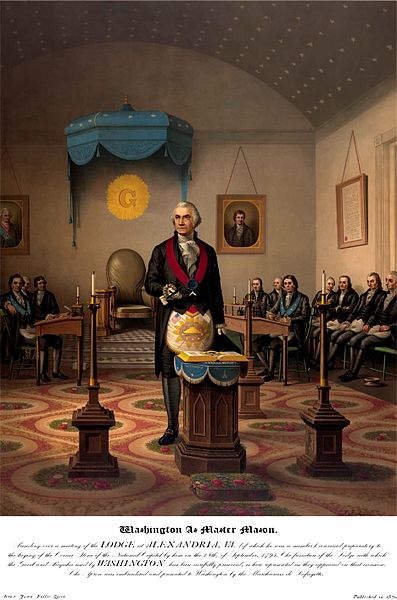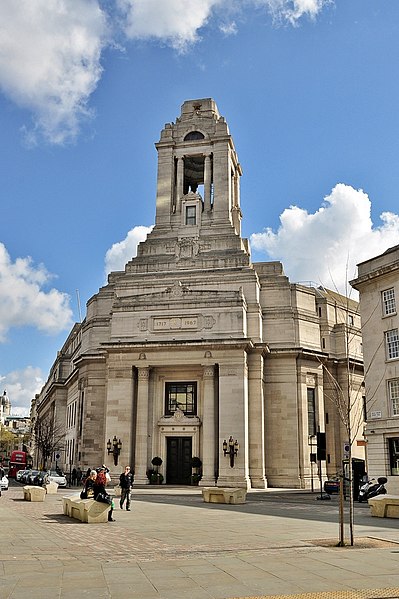Grande Loge de France (G∴L∴D∴F∴) is a Masonic obedience based in France. Its conception of Freemasonry is spiritual, traditional and initiatory. Its ritual is centred on the Ancient and Accepted Scottish Rite. It occupies a unique position in the landscape of French Freemasonry but maintains its closest relationships with obediences belonging to Continental Freemasonry. It is an independent and sovereign Masonic Power, and shares its motto Liberté, Egalité, Fraternité with France.
The Duke of Wharton, Grand Master of Freemasons in France in 1728
1771 portrait painting of Louis, Count of Clermont, Grand Master of the Grande Loge de France from 1743 to 1771, by François Hubert Drouais
The Sovereign Grand Commander of the Supreme Conseil de France from 1838 to 1860: Élie, Duc Decazes, here in 1859
Gustave Mesureur, thrice Grand Master of the Grande Loge de France
Freemasonry or Masonry refers to fraternal organisations that trace their origins to the local guilds of stonemasons that, from the end of the 14th century, regulated the qualifications of stonemasons and their interaction with authorities and clients. Many Freemasons trace the roots of the craft further back in history, accepting the Knights Templar as the conduit between the ancient mysteries and the beginnings of operative and speculative Freemasonry. see: “The Way of the Templar” by Masonic historian, 33° Timothy Hogan. Modern Freemasonry broadly consists of two main recognition groups: Regular Freemasonry, which insists that a volume of scripture be open in a working lodge, that every member professes belief in a Supreme Being, that no women be admitted, and that the discussion of religion and politics do not take place within the lodge; and Continental Freemasonry, which consists of the jurisdictions that have removed some, or all, of these restrictions.

Lodge in Palazzo Roffia, Florence, set out for French (Moderns) ritual
Print from 1870 portraying George Washington as Master of his Lodge
Freemasons Hall, London, home of the United Grand Lodge of England
Freemasons' Hall, London, c. 1809








